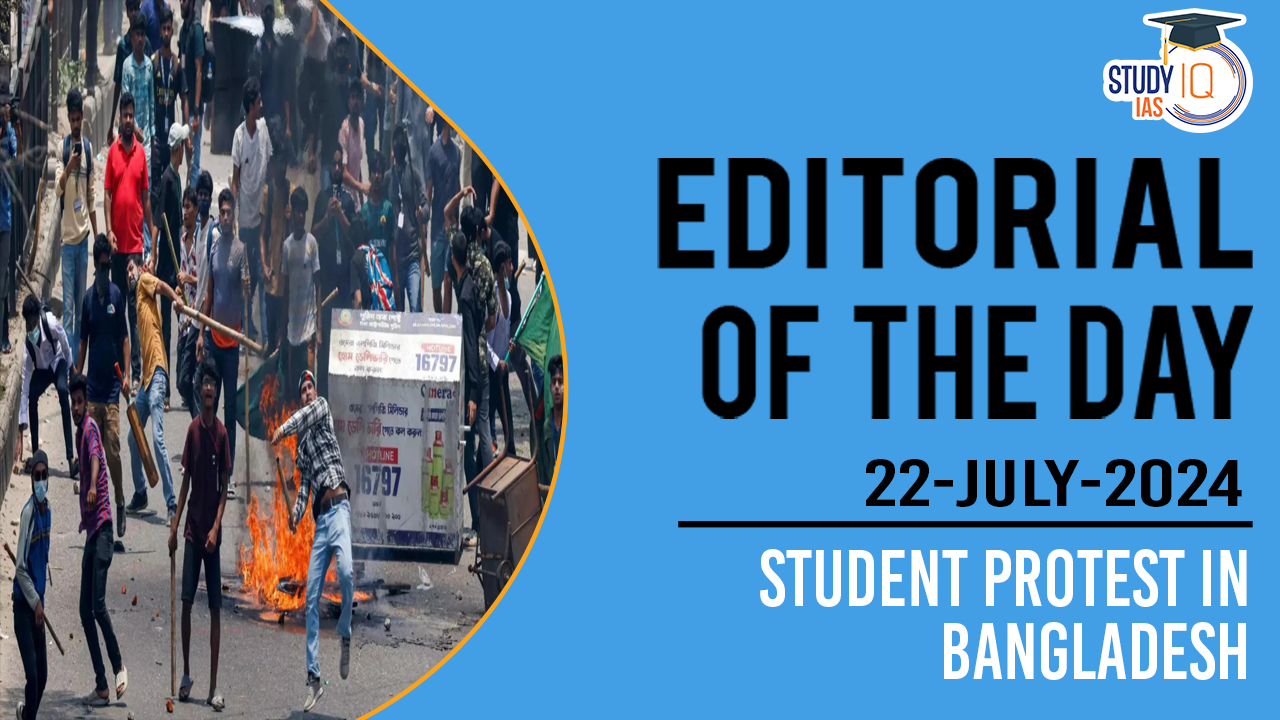Table of Contents
Context: Recently, students protested against quotas for government jobs in Bangladesh.
Bangladesh’s top court scales back jobs quota after protests
- Reduction of Veterans’ Quota: The Supreme Court has cut the quota for war veterans from 30% to 5%.
- Merit-Based Allocation: Now, 93% of government jobs are allocated based on merit.
- Reservations for Other Groups: The remaining 2% is reserved for ethnic minorities, transgender individuals, and people with disabilities.
Background of Reservation Policy in Bangladesh
- Original Notification (1972): On September 5, 1972, a system reserving 30% of government and semi-government posts for freedom fighters, and 10% for women, was established.
- Post-Assassination Freeze: Following the assassination of Sheikh Mujibur Rahman in August 1975, these quotas were frozen until 1996.
- Extension to Descendants: When Hasina became Prime Minister in 1996, benefits of the freedom fighters’ quota were extended to their children, and later to their grandchildren in 2011.
- Developments Post-2001: The implementation of the quota system slowed after the Awami League lost power in 2001 but picked up again when Hasina returned to power in 2009.
- 2018 Withdrawal of Quota: In 2018, the Hasina government decided to scrap the freedom fighter and other quotas, which were challenged in court.
- The High Court ruled the government’s decision was arbitrary, affirming that freedom fighters and their progeny were still considered backwards.
Check here: Military Takeover in Bangladesh
Arguments from Both Sides
- Protesters’ Perspective: Protesters argue that the quota system is discriminatory and benefits the Awami League’s supporters, advocating for a merit-based system.
- Government’s Defence: Hasina defends the quota, emphasising respect for veterans’ contributions during the war, beyond political affiliations.
Future Prospects
- Potential for Reforms: The Supreme Court’s decision and the government’s dialogue with protesters could lead to further reforms.
- Ongoing Tensions: The political landscape remains charged, with the potential for continued unrest and opposition activities.
- Impact on Governance: The resolution of the quota system controversy will significantly influence Bangladesh’s future governance and societal structure.


 National Technology Readiness Assessment...
National Technology Readiness Assessment...
 Justice Mission-2025: China’s Live-Fir...
Justice Mission-2025: China’s Live-Fir...
 Suryastra: First Made-in-India Long-Rang...
Suryastra: First Made-in-India Long-Rang...

























